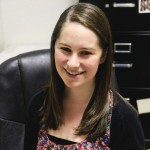Let me start by saying that this is going to be an unpopular opinion.
To put you in the right frame of mind, picture the teacher’s pet in your sixth-grade English class who read every single summer reading book on the list just so he could answer every one of the teacher’s questions. Well, for the next 900 words, I am going to be that kid. Except I’ll try not to annoy you quite as much.
From Feb. 14 to 17, the entire Boston University in Sydney program took an academic trip to Melbourne, and BU covered all the major expenses — side note: Thank you times a million for that, BU. They also planned a few academic components: a one-hour lecture Monday morning and two academic tours over the course of our three days there. Overall, it added up to about five hours of required academic programming in the 72 hours in Melbourne.
Here’s where I go a little teacher’s pet on you: Academic trips here are not academic enough.
Yes, you heard me right.
Now, I’m not asking for more time spent in academic programming. To be clear, that free time — and keep in mind that about 24 of those 72 hours were spent sleeping — was invaluable. In my free time in Melbourne, I experienced a virtual reality art exhibit at the National Gallery of Victoria, took a 12-hour tour of the Great Ocean Road and went to a bar called Berlin, where the physical bar separates the room into two pieces — East Berlin and West Berlin. To say the least, my trip to Melbourne, outside of the academic programming, was still an educational experience.
But as soon as I arrived home, I had to jump into the post-trip assignment and write an ethnography about an activity, venue, event or piece of Melbourne’s identity that I found fascinating. And that was when I realized the problem: the academic components of the trip were not academic enough. I can only speak for the two academic tours I attended, but overall, they didn’t prepare me to write an ethnography. They gave me a disjointed idea of the many beautiful things that make up the city of Melbourne. But I don’t feel that I understand any single piece of Melbourne with complete confidence. I needed something more.
Now, before you all go jumping down my throat that lectures are boring and “experiential learning is the best kind of learning,” take a step back and hear me out. Though you’re probably still rolling your eyes at the absolute cliché that is a young bookworm begging for more academia in her life, I’m here to make a real point, and it’s not just about wanting to learn more.
The bigger issue is that when I initially said that academic trips here lack academia, you most likely did not respond, “Really? I’m shocked!” In fact, you probably weren’t surprised at all. You probably even considered closing this tab because why read a column about a group of college students who prefer to explore a city than sit through an academic session? Isn’t that the entirety of college-aged America?
Well, first of all, thanks for not closing this page when you considered it. But now onto the issue at hand: why weren’t you surprised?
It’s most likely because you know that most college students don’t travel abroad to challenge themselves academically. Ultimately, the personal and cultural challenges they’ll face abroad are vastly more important to their growth than the academic ones. And there’s nothing wrong with that. I’m one of those students too.
But the assumption that academic growth needs to be forfeited or minimized for the sake of personal growth is where we run into a problem, and it starts far earlier than just college. In a study released during winter 2014, University of Arkansas researchers reported a decrease in field trips in U.S. public schools. In the 2010-11 school year, more than half of schools eliminated fields trip, according to an American Association of School Administrators survey cited in the research. As a result, museums, arts organizations and other historic sites across the country are seeing a decrease in attendance.
So how does this affect college field trips? Well, for one, as students get older, any requirement of time or energy feels like a breach of independence. As a result, educators do anything to keep students actively involved and motivated, even if it means forfeiting some straightforward instructional time. During the Melbourne trip, this resulted in academic tours that were led casually with very little educational commentary tying the sites together. It’s not that the trip to Melbourne wasn’t well planned or incredibly valuable. In fact, that trip is probably one of my favorite experiences from studying abroad so far.
But here’s my call to action to educators everywhere: Personal growth and academic growth do not have to be in a game of tug-of-war. Next time you’re planning a field trip, find ways to make the fun educational and the education fun. Both sides can win. And as a result, your bookworm-ish journalists won’t feel the need to write columns about the need for more academia in academic trips.
Former Editor-in-Chief. I'm addicted to The Daily Free Press, and I thrive on coffee, journalism, and jars of Nutella.

